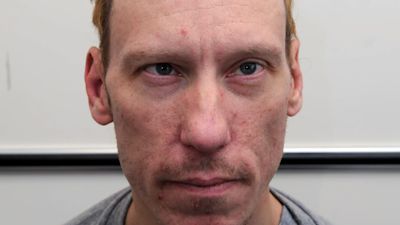Police to reform death probes approach following serial killer Stephen Port victims’ inquest

Senior police officials are reforming how forces nationwide approach investigating unexplained deaths, following an inquest for victims of serial killer Stephen Port.
The Metropolitan Police were singled out for criticism by a coroner after the rapist and murderer killed four men - dumping their bodies near his Barking, east London. flat.
Port embarked on a 16-month killing spree that was finally brought to an end following the death of his final victim, Jack Taylor.
The chef stalked his victims on gay dating apps including Grindr, and plied them with fatal amounts of date-rape drugs so he could attack them.
It took the Metropolitan Police 15 months to link the men's deaths and catch their killer.
Families of the four victims believed that homophobia played a part in police failures to uncover and bring Port's crimes to a halt.
In January this year, a coroner’s report on the deaths of Port's victims - Anthony Walgate, Gabriel Kovari, Daniel Whitworth and Mr Taylor - identified a “large number of very serious and very basic investigative failings” by police, including a “lack of professional curiosity” about the cases.
The report, by Sarah Munro QC, also expressed concern over how deaths are classified as “unexplained” rather than suspicious.
On Tuesday (19 April), the Met Police and the National Police Chiefs’ Council (NPCC) responded, saying they have formed four new classifications “so as to provide absolute clarity to officers responding to and investigating deaths”.
These are “expected deaths” – where there is a medical diagnosis; “unexpected death investigated and not suspicious” – where evidence shows “no third party involvement”; an “unexpected death under investigation” – where further investigation is required; and “homicide” – where it is likely there was third party involvement.
The changes will be presented to the Front Line Policing (FLP) Chief Officer Group (COG) and the Met said they aim to embed them across the force by June 30.
Ms Munro had said: “The term ‘unexplained’ as used in the current policy may distract officers from the correct and necessary approach, which is for the death to be treated as suspicious unless and until the police investigation has established that it is not.”
The coroner also expressed concern over “a lack of ownership and responsibility for the investigations of unexplained deaths” among leaders in the Met.
In response to this, the Met said they have now “agreed and set out clear guidelines detailing the responsibilities that officers of different ranks have in death investigations” leaving them “in no doubt as to their responsibilities and those of their colleagues”.
Mr Kovari’s death was classed as “unexplained but not suspicious” within five hours of his body being discovered, despite an inspector later admitting they had no idea how he had died.
Mr Whitworth’s death was also classed as non-suspicious on the day he was found, even though investigators had not properly checked that a fake suicide note found with his body was genuine.
The letter had been planted by Port, falsely claiming that Daniel had accidentally killed Gabriel, when in fact the two did not know each other and were not together on the night Mr Kovari died.
An Old Bailey jury convicted Port of a total of 22 offences against 11 men, including the four murders, four rapes, 10 counts of administering a substance, as well as four sex assaults in November 2016. He was cleared on three counts of rape.
Ms Munro did not make her own finding on the issue of whether homophobia played a part in the police failings.
However, she said she agreed with a report by the Independent Office for Police Conduct (IPCC) that suggested “the possibility of assumptions being made about the lifestyle of young gay men and the potential vulnerability of men cannot be ignored, and may reveal that intersectionality was present in policing in 2014/2015, and may still be”.
Digital, Culture, Media and Sport Secretary Nadine Dorries also responded to Ms Munro’s concern about the Sleepyboy website that was used by Mr Walgate in his work as an escort to arrange to meet Port.
Ms Dorries said the Online Safety Bill, which was introduced to Parliament on March 17, will “usher in a new era of accountability for the tech sector and ensure that they take more effective action to tackle criminal activity, including when their users are anonymous”.